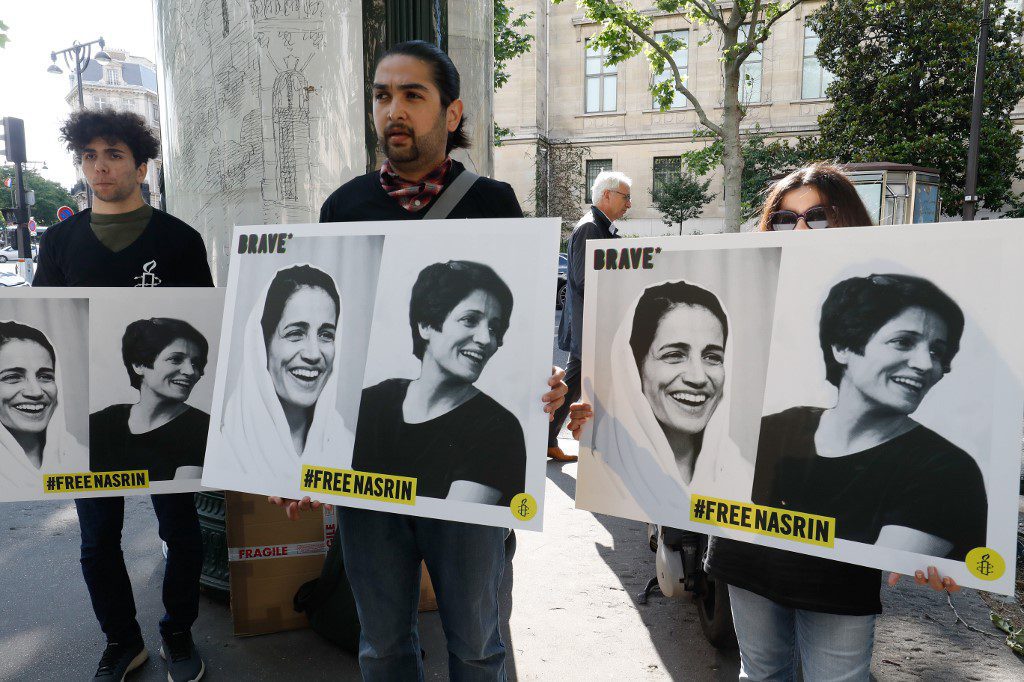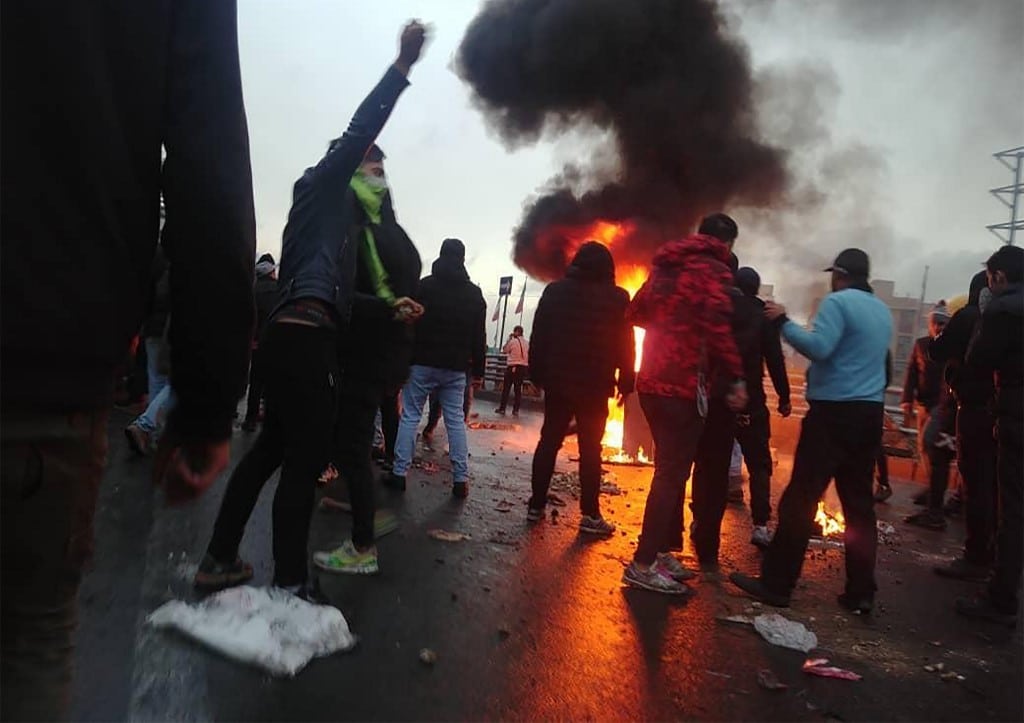
Florence Massena
Iran is not famous for its respect of human rights, especially when it comes to freedom of expression and discrimination. But recent reports by diverse human rights organizations have pointed out the violations Iranian prisoners endure from the authorities, among them torture, inhumane punishments and the death penalty.
When talking about violations against Iranian prisoners, we have to think especially about the human rights activists and political prisoners, arrested in mass over the years for vague reasons such as, in the case of a dual citizen (Iranian and foreign), charged with “cooperating with a hostile state” or espionage. Moreover, massive protests against the fuel’s price increase and governance erupted in 2019 all over the country, leading to hundreds of death from police brutality during the protests.
“In the days following the mass protests, videos showing Iran’s security forces deliberately killing and injuring unarmed protesters and bystanders sent shockwaves around the world. Much less visible has been the catalogue of cruelty meted out to detainees and their families by Iranian officials away from the public eye,” said Diana Eltahawy, international organization Amnesty International’s Deputy Regional Director for the Middle East and North Africa in a report published on September 2, 2020.
“Instead of investigating allegations of enforced disappearance, torture and other ill-treatment and other crimes against detainees, Iranian prosecutors became complicit in the campaign of repression by bringing national security charges against hundreds of people solely for exercising their rights to freedom of expression, association and peaceful assembly, while judges doled out guilty verdicts on the basis of torture-tainted ‘confessions’. This litany of crimes and violations, committed with total impunity, has been accompanied by a wave of forced televised ‘confessions’ in state propaganda videos and grotesque statements from top officials who have praised intelligence and security forces as heroes for their role in the brutal crackdown.”
The organization identified more than 500 protesters and other individuals, including journalists and human rights defenders, who have been convicted to various charges such as: “gathering and colluding to commit crimes against national security”, “spreading propaganda against the system”, “disrupting public order” and “insulting the Supreme Leader”.
And once in jail, those prisoners are often faced with various abuses, like humiliations, moving them to jails far from their families, absence of proper medical care, food deprivation and acts of violence. “The conditions of political prisoners and human rights activists are even worse than criminal convicts because the Judiciary authorities puts a lot of pressure on them”, said Bijan Baharan from the NGO International Federation for Human Rights (FIDH), to Fanack. “The majority of the Parliament is pro-leader and don’t want anything to do with human rights, so the Judiciary power does everything they like.”

Baharan mentioned the case of Nasrin Sotoudeh, renowned Iranian women’s and human rights lawyer who was sentenced in March 2019 to 38 years in jail and 148 lashes for allegedly spying, spreading propaganda and insulting Iran’s supreme leader: “She was recently transferred to a remote prison from the capital and from her family that hosts criminals. They did this to punish her for bringing attention to her condition through her hunger strike.” She has been temporarily released on November 7 2020 because of her deteriorating health after a lengthy hunger strike.
The FIDH also heard news of Behnam Mahjoubi, who was among more than 300 Dervish community members arrested for involvement in anti-government protests in Tehran, February 19-20, 2018.”He said the authorities had plans to kill him by torturing him, even they urinated on him. He was ashamed to mention what had happened to him since he was imprisoned,” Baharan said about Mahjoubi.
Another new source of worry for human rights organizations is the way the authorities deal with the Covid-19 in jail. Narges Mohammadi, human rights activist released from prison in October 2020 after showing symptoms of Covid-19, said that there was no disinfectant, and that even when the prisoners offered to buy some themselves their request was denied. In a letter sent on July 13, 2020, she wrote that she and 11 of her cellmates were suspected of having been infected with the coronavirus, adding that they were feeling sick while being denied access to “medication, treatment, and proper nutrition.” “It’s like an attempt to kill them”, Baharan said. “The Iranian authorities had said they would release one third of the prisoners because of the virus but we have no information on how many got released, and it concerns only a few activists who were at the end of their sentence.”
And when it comes to killing prisoners, Iran has the means to do it more publicly too. In a report published on October 8, 2020, the FIDH pointed out that at least 251 people were executed in 2019 and more than 190 in the first nine months of 2020. The reports adds that: “The overwhelming majority of capital crimes in Iran fails to meet the threshold of the “most serious crimes” and, as a result, is in contravention with the country’s obligations under the International Covenant on Civil and Political Rights (ICCPR). Capital offenses that do not meet the “most serious crimes” threshold include, but are not limited to: sex-related offenses; religious offenses; political offenses; drinking alcoholic beverages; drug-related offenses; economic offenses; and cyber crimes.” Iran also punishes by death minors and women, members of the LGBTQ+ community, some of the country’s ethnic communities such as Kurds, Arabs, and Baloch, and religious minorities, but also protesters who participated in nationwide anti-government protests in December 2017, January 2018, August 2018, and November 2019. “Iran is not a country that respects the rule of law, they even violate their own”, Baharan told Fanack. “So let’s imagine the international law…”
With such a stand on human rights and almost no international punishment towards it, Iran seems to be able to do whatever it takes so the authorities can keep a strict control on its population. But with more and stronger resistance from the population, the citizens might go once again to the streets for a definite change.


